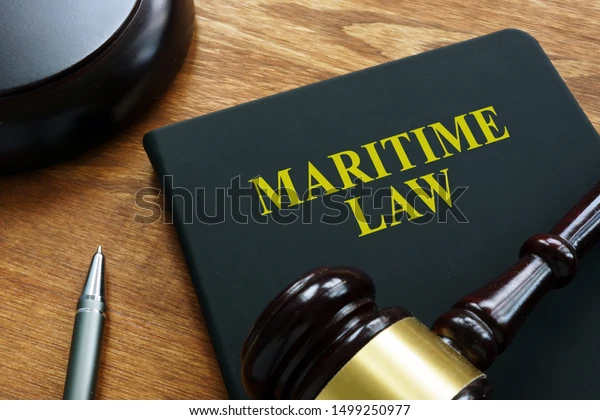In a unanimous decision, the U.S. Supreme Court has reversed the Third Circuits decision. “Applying federal maritime law in this case, we conclude that choice-of-law provisions in maritime contracts are presumptively enforceable, with certain narrow exceptions not applicable here.”
Raiders (a Pennsylvania business) purchased yacht insurance underwritten by Great Lakes Re (a German company headquartered in London). The policy included a choice-of-law clause that selected New York law. Raiders submitted a claim arising from a grounding near Ft. Lauderdale, Florida. Great Lakes denied coverage on the basis that the Policy’s fire-suppression warranty was breached, rendering the Policy void from inception, even though the fire-suppression system was not a cause of the grounding. Coverage litigation ensued in the Eastern District of Pennsylvania, with Raiders arguing the choice of law provision should yield to Pennsylvania law, and Great Lakes arguing it should be enforced, and New York law applied. The district court agreed with Great Lakes, but on appeal the Third Circuit sided with Raiders, holding that maritime law must “yield to a strong public policy of the state in which the suit is brought.” The U.S. Supreme Court granted review to resolve a split in the Court of Appeals regarding the enforceability of choice-of-law provisions in maritime contracts.
Justice Kavanaugh, writing for the majority, first focused on the importance of national uniformity in maritime law to promote navigation, commerce, and international relations. The Court then explained the limited circumstances of when state law should be applied to fill “gaps” in federal maritime law. The first step is determining if an established rule exists (i.e. a body of judicial decisions). The second step is that, in the absence of an established rule, the federal court may then create uniform maritime rules. The third step is that only when no established rule exists, and when the federal courts decline to create a new rule, federal courts will then apply state law.
Following this three-step inquiry, the Court first examined whether there is an established federal maritime rule regarding enforceability of choice-of-law provisions- and determined that answer is yes. Longstanding precedent establishes a federal maritime rule that choice-of-law provisions (like forum selection provisions) in maritime contracts are presumptively enforceable. The Court also examined the ways in which such provisions facilitate maritime commerce by (1) reducing uncertainty and lowering costs; (2) discouraging forum shopping and cutting costs of litigation; (3) enabling maritime insurers to better assess risk; and (4) lowering insurance prices and expanding availability of marine insurance, an integral part of nearly every time maritime transaction.
The Court next identified the two narrow exceptions that may apply to the presumption of enforceability- none of which applied to the Raiders’ insurance claim. One is when the chosen law would contravene a controlling federal statute, or conflict with an established federal maritime policy. Two is that when there is no reasonable basis for the chosen forum, the court may disregard it, but it must apply substantial deference to the contracting parties. The exception proposed by Raiders (when the provision would contravene the fundamental public policy of the state with the greatest interest in the dispute), was reviewed and flatly rejected by the Court as contrary to uniformity.
Justice Thomas wrote in concurrence to highlight how the Wilburn Boat opinion (that state law governs the effect of a breach of warranty in a marine insurance policy) rests on “flawed premises” and how it is “at odds with the fundamental precept of admiralty law.” Justice Thomas noted that the first conclusion in Wilburn Boat, that there as no established federal admiralty rule requiring literal compliance with express warranties- is indefensible. Second, the Wilburn Boat opinion identified prior decisions providing a rule, but did not explain why those decisions were insufficient to create an established rule. Third, there was a complete failure to address the “seemingly universal endorsement” of the rule in marine treatises such as Arnould on Marine Insurance, Gilmore & Black, and Schoenbaum.
Commentary: having read the various briefs and listening to the oral arguments last year, the majority holding came as no surprise (that presumptive enforceability of forum selection and choice-of-law is a well-established maritime rule). What I believe will have further reach is the majority’s limitation on the Wilburn Boat decision, combined with Justice Thomas’ scathing concurrence that Wilburn Boat was fatally flawed; and that maritime law has an established rule requiring strict compliance with warranties. This may provide a path for future district and circuit courts decisions to reconsider prior decisions holding that breaches of express warranties in marine policies are determined by state law. Wilburn Boat has created a lack of uniformity in warranties within a single policy- some being considered maritime in nature, and others non-maritime and governed by state law.
By KRISTA FOWLER ACUNA
View Opinion on Supreme Court’s Website Here
Great Lakes Insurance SE v. Raiders Retreat Realty Co, Ltd.,
No. 22-500 (February 21, 2024)-
Hamilton Miller & Birthisel, LLP is a boutique trial law firm specializing in the areas of admiralty/maritime law, personal injury defense, premises liability, insurance defense and coverage, labor and employment, corporate transactions, governmental law and commercial litigation. The firm has over 100 attorneys located in all major cities in Florida, New York, Virginia and the Caribbean. For more information about our practice areas and attorneys, please visit hamiltonmillerlaw.com.

